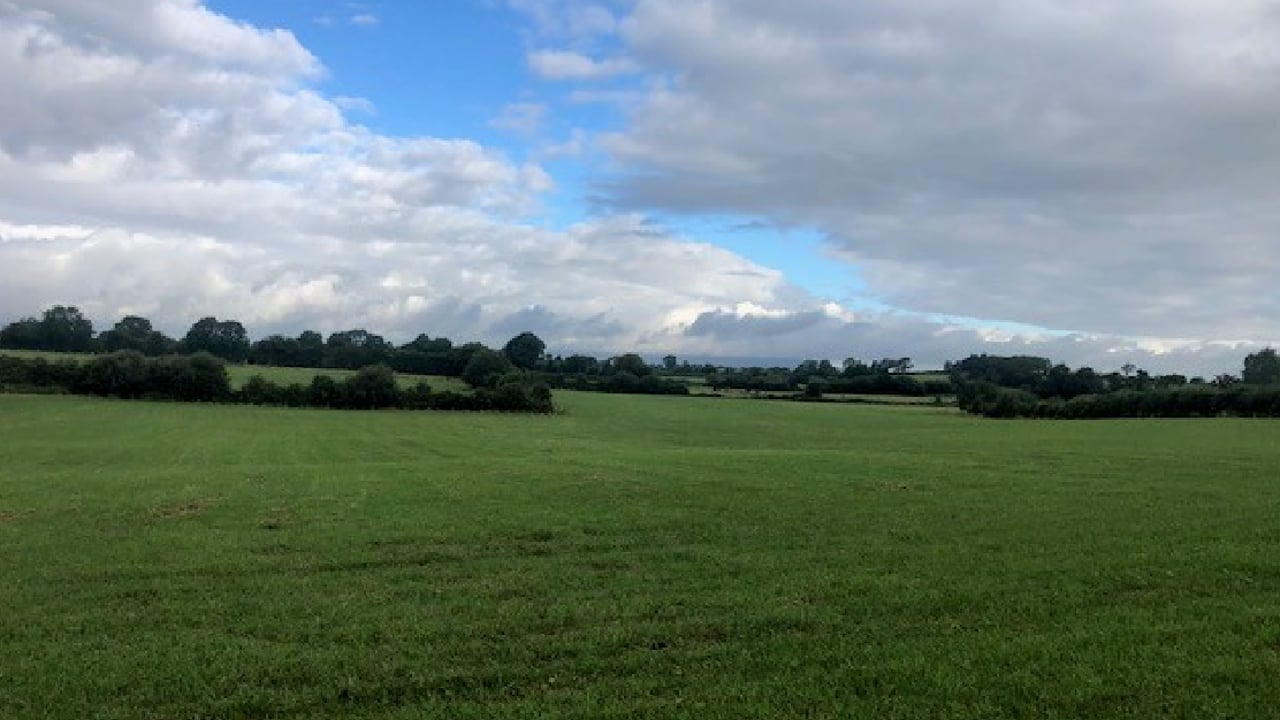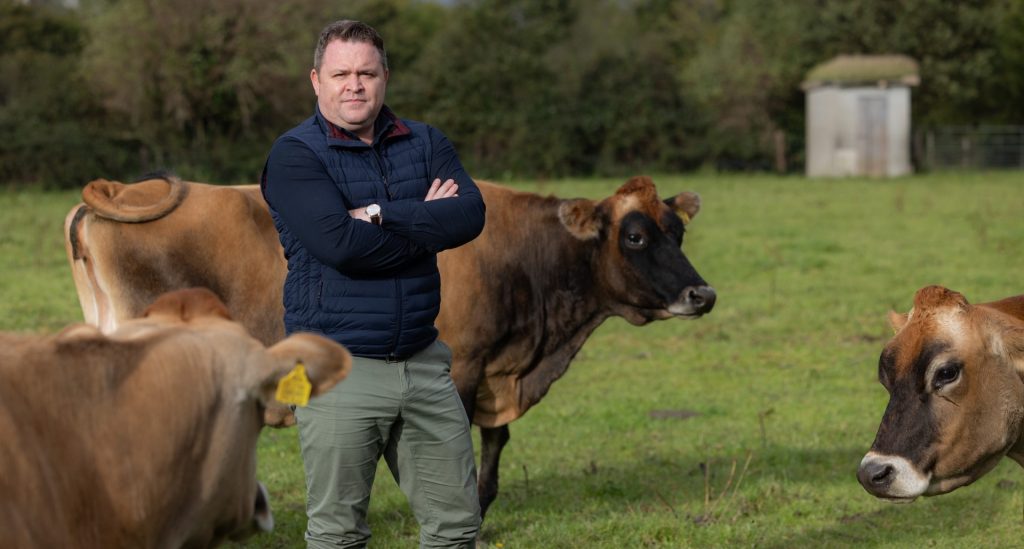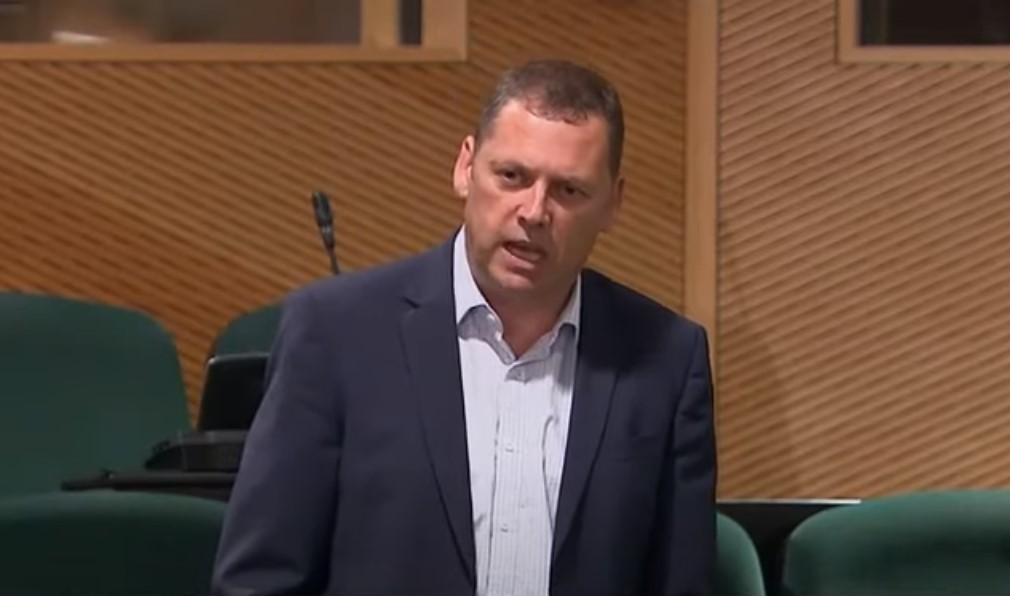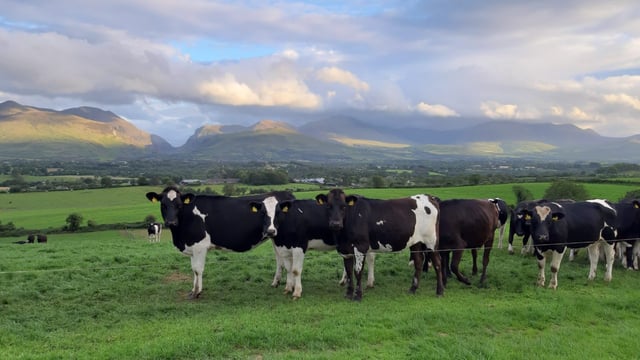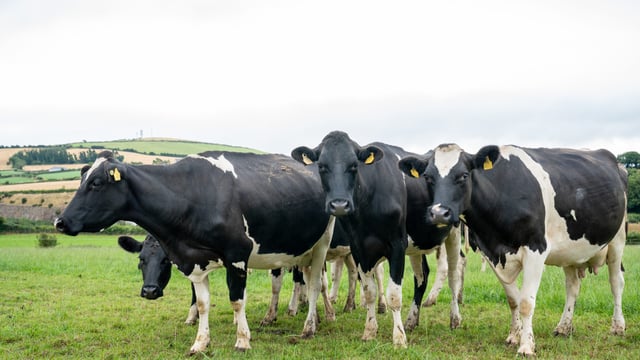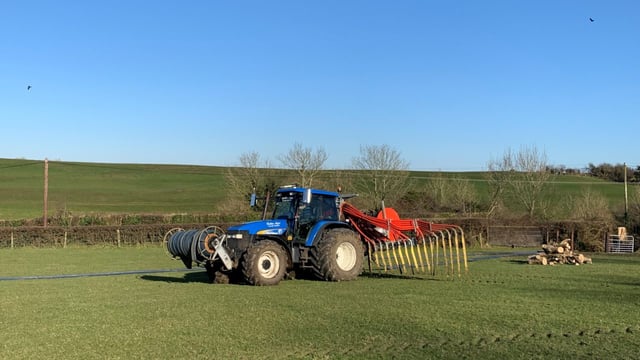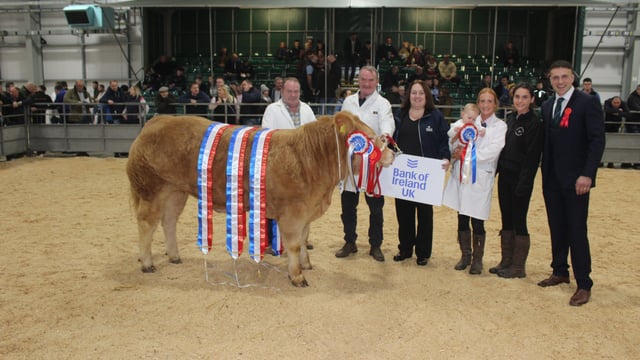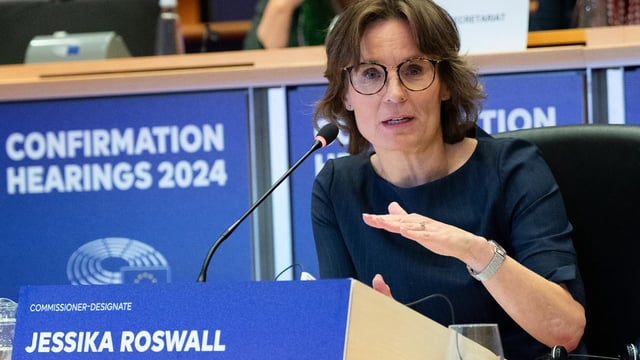Mixed reactions to potential for Ireland to retain nitrates derogation
With the European Commission confirming today (Thursday, November 27) that it is proposing that Ireland retains a nitrates derogation for a further three years, there has been a mixed reaction from some quarters.
EU Environment Commissioner Jessika Roswall confirmed to Agriland that the European Commission has submitted a draft proposal to the Nitrates Committee "to extend the Irish [nitrates] derogation".
"It is now up to the member states to agree to this before the commission can formally adopt the proposal," the commissioner added.
The nitrates derogation allows farmers to exceed the limit of 170kg of livestock manure nitrogen per hectare set down in the Nitrates Regulations, up to a maximum of 220kg per hectare, subject to adherence to stricter rules.
A decision will be made by the committee in the EU on December 9, but there is no detail as yet as to what possible terms and conditions may be attached, except for agriculture minister Martin Heydon outlining that requirements include the need for Ireland to conduct environmental assessments at catchment level to demonstrate compliance with the Habitats Directive.
Reaction to nitrates derogation
Dairy Industry Ireland (DII) has welcomed the decision by the European Commission to recommend the extension of the nitrates derogation for Ireland.
DII director, Conor Mulvihill said: "Fantastic news at a time the markets are in trouble; this is a great fill-up for farmers coming up to Christmas. It’s the best Christmas present, not just for farmers but the agriculture and economy of Ireland.
"If we lost the derogation it would have cost the economy more than the banking crisis cost us; that’s the EY figures. 45 billion [euro] of a cost if we lost it.
"This is not a derogation; it’s a misnomer. We should never have called it a derogation. Anyone availing of the derogation, they go into a conditionality far and away above any other farmers, so they have higher standards and regulations for water quality which is often forgotten about as well".
The DII director mentioned that Ireland has the fourth best water quality in the EU and when voting takes place on December 9, Mulvihill said: "I think other countries know how important this is economically, environmentally and socially to Ireland."
"[On the conditionality] we want something that’s fair, and operable, and that farmers can farm under, and most important, that young people are confident to come in," he added.
Meanwhile, Fianna Fáil MEP for the Midlands North West, Barry Cowen, has warned that Ireland risks accepting a nitrates derogation deal “without knowing the conditions attached”.
He said that the details of the conditionality that will accompany the extension have not been shared with elected representatives, farming organisations or key parliamentary committees.
Cowen said that this lack of transparency is "deeply concerning" given the scale of the impact on Irish farming.
Under the procedure, the EU Nitrates Committee may approve, amend or add conditions to the derogation before the European Commission formally adopts it.
Cowen has raised concerns that this process risks "bypassing democratic oversight and leaving farmers with terms they have not been consulted on".
“Any deal is not automatically a good deal. We still do not know what level of conditionality will be attached to the derogation, because those with a democratic mandate to represent Irish farmers have not been shown the proposal," Cowen said.
“Decisions of this magnitude cannot be left entirely to an unelected committee. If the conditions being drafted make the derogation unworkable or unviable, then the time for targeted discussion is now, not after it is signed off and imposed on farmers.”
An Taisce
Environmental group, An Taisce has reacted to the news regarding the nitrates derogation by highlighting its ongoing effort to shine a light on what it calls the "dire state of Irish water quality".
"Recent EPA data demonstrating that half of Irish rivers and lakes, and 2/3 of estuaries are polluted. Agricultural nitrogen is a major source of this pollution, resulting from animal manure, slurry and fertiliser," An Taisce stated today.
An Taisce previously called on the commission to put Ireland on an "off-ramp, to wean us off our reliance on the nitrates derogation".
Head of Advocacy with An Taisce, Dr. Elaine McGoff said: “Given the lack of detail about how this renewed derogation will be managed differently, and looking at our terrible track record of protecting water quality from agricultural pollution, I’m really concerned that the conditions attached, may not address the long established pattern of agricultural water pollution, and may instead just further exacerbate that.
"This derogation decision is meant to be based on the science, but the evidence is very clearly indicating that we have a serious nitrogen pollution problem in Ireland, and the measures we’re putting in place to address that are not working.
"An Taisce has long called on successive governments to put in place contingency plans to deal with a potential loss or major amendment to the nitrates derogation, despite them highlighting that it is a key element for the ongoing economic future of Ireland’s dairy industry, with significant consequences for farmers if it were to not be renewed."
The organisation said it has again called on the Irish Government to put in a place a plan to transition farmers away from relying on a derogation.
A spokesperson for the European Commission stated to Agriland today: "Any request for [nitrates] derogation is assessed on its merits: data on water quality, and compliance with the Nitrates Directive.
"The state of Irish waters is considered to be good even if nitrate concentrations are still high in some parts of the country. Ireland has taken – and continues to take - steps to address those issues."
Additional reporting by Charles O'Donnell

